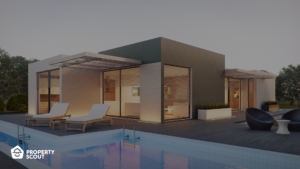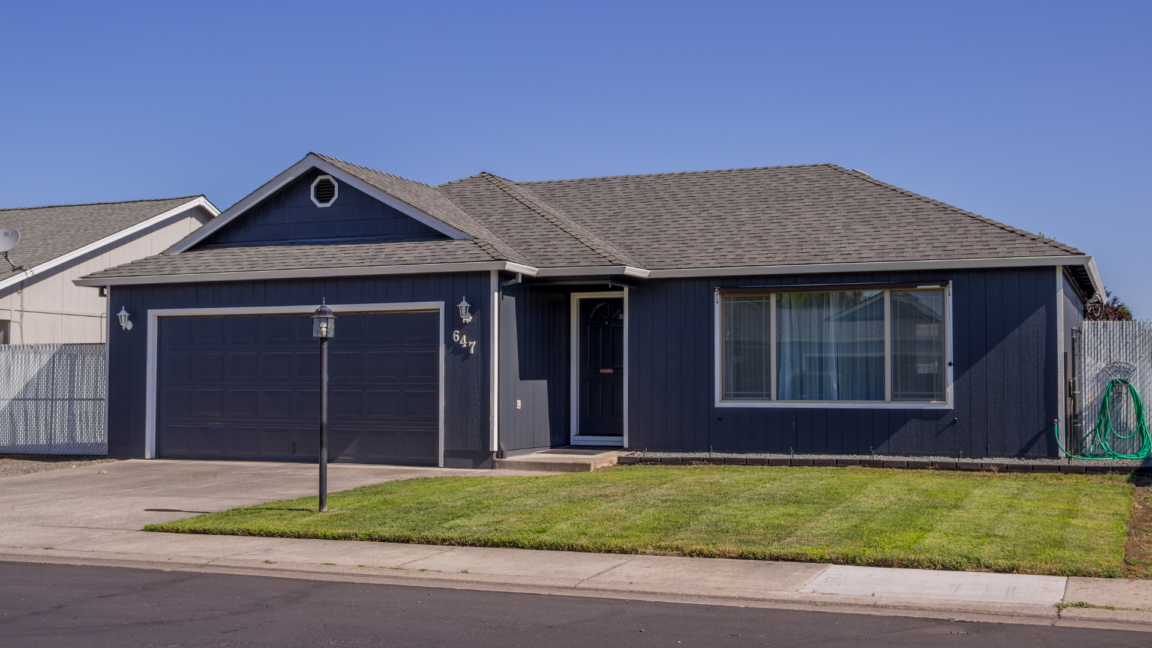The Pros and Cons of Single-Story Homes: Is a One-Level Haven Right for You?


Exploring the world of homes reveals a multitude of styles and choices available to homeowners. From decorative flair to construction materials, architectural designs often take inspiration from the Western world. However, beyond structural aspects, materials, and aesthetics, these features serve the diverse needs of homeowners. In this blog post, PropertyScout takes a deep dive into the realm of single-story houses, examining the pros and cons. Whether you're currently in the market for a one-story home or simply curious, this article aims to provide invaluable insights into the world of single-level living.
Are Single Story Houses Suitable for You?
When it comes to building or purchasing a house, selecting the ideal location and climate-appropriate design is essential. For individuals seeking convenience, simplicity, or a retirement home suitable for elderly cohabitation, a single-story house presents an attractive choice. In this blog post, we will delve into the various advantages and disadvantages of opting for a one-story dwelling.
The Benefits

- Lower construction costs
When working with a limited budget, there's no need to compromise on your dream home. Embrace the charm of a cozy and compact single-story house. With its simple yet sturdy structure, a single-story home provides an affordable alternative to multi-level constructions. Ideal for new families and individuals with budget constraints, these homes offer a perfect place to call your own. And remember, single-story homes aren't limited to small sizes.
- Perfect for families with elderly or wheelchair users
Single-story homes offer a range of advantages, particularly for families with elderly members or individuals using wheelchairs. With all rooms and living spaces conveniently located on a single level, concerns about stairs and accidents are eliminated. These homes provide a comfortable environment that promotes freedom and independence for elderly relatives, allowing them to move around with ease. Moreover, wheelchair users can navigate different rooms effortlessly, fostering a sense of self-reliance. Additionally, families with young children can also benefit from single-story homes, providing a safe and worry-free environment without the need to navigate stairs.
- Effortless Furniture Moving
In a single-story home, lifting and lowering heavy pieces becomes a breeze, making it the perfect choice for those with large furniture or individuals living alone. Not only that, but it also minimizes the risk of furniture damage during frequent relocations.
- Convenient Care & Maintenance
Cleaning and maintaining a single-story home is a breeze compared to multi-story houses. It not only saves time but also requires minimal effort. Moreover, when it comes to exterior repairs like roof maintenance or repainting, the convenience factor shines as there's no need to climb tall staircases to reach upper levels. This significantly reduces the risk of accidents from falls.
- Easy Decoration and Remodeling
Due to the straightforward structure of single-story homes, it is easier to decorate and remodel the living space. If there is ample space available, it becomes more convenient to undertake renovations and modifications.
The Drawbacks

- More Land required if you want more Interior Space
If you desire a spacious interior, it will require a considerably larger land area to construct a single-story house compared to a two-story house. This is to ensure sufficient usable space within the house as per your needs. However, acquiring additional land may increase your land acquisition costs. Moreover, if the available land area is limited, future expansion or remodeling might pose challenges.
- Heat transfer and Ventilation in the house
Due to the proximity of the ceilings or rooms in a single-story home to the roof, heat from the roof directly enters all living spaces. In comparison, in a two-story house, the upper floor absorbs most of the heat from the roof, resulting in higher temperatures during hot seasons. To mitigate this, it is advisable to insulate the ceiling to prevent heat transfer or install heat-reflective panels beneath the roof tiles. Another option is to use roof tiles with heat-reflective properties. Additionally, designing the house with ample openings such as doors and windows allows for better ventilation and airflow.
- Flooding and Moisture Issues
Single-story homes often have a low elevation from the ground, making them susceptible to flooding, particularly in areas prone to frequent flooding. The lack of an upper floor space for relocating appliances and belongings to higher ground increases the risk of damage during flooding incidents. Additionally, the moisture content in the soil can lead to detrimental effects on the structural integrity and aesthetics of the flooring and walls, such as termite infestations and mold growth. This issue can be addressed by constructing the house with an elevated foundation, raising it approximately 0.80-1.20 meters above the ground level, to mitigate these concerns.
Read More:
- Safety & Security
Occasionally, single-story homes can be susceptible to intrusions by pests, insects, or even burglars, as they have easier access compared to multi-story houses. Therefore, it is advisable to have a sturdy fence surrounding the house, install security devices, and ensure that the house is securely locked at all times, especially when sleeping or when no one is home.
Read More:
- Low Privacy
Due to the limited living space in single-story homes, all rooms are typically allocated on the same level. This means that if you have guests or relatives visiting or staying with you, they may have easy access to your bedrooms or important rooms. Therefore, it is crucial to carefully design the layout and allocate the living space to ensure optimal privacy.
Consider your House Selection Wisely
When it comes to single-story homes, their simplicity and ease of construction offer cost-saving benefits. However, it's essential to remember that every home design has its own set of advantages and disadvantages. These factors ultimately rely on the homeowners' personal preferences and needs. That's why PropertyScout suggests carefully considering the desired functionality and purpose of your future home before making a purchase. Take the time to identify the features that matter most to you and address any concerns you may have. By doing thorough research and gathering comprehensive information from project developers, you'll be able to make an informed decision when buying a property. Remember, understanding your priorities is key to finding the perfect home for you.
Detached houses, townhouses, villas, condos, and more. Let PropertyScout help you find your haven for the best prices possible TODAY!



